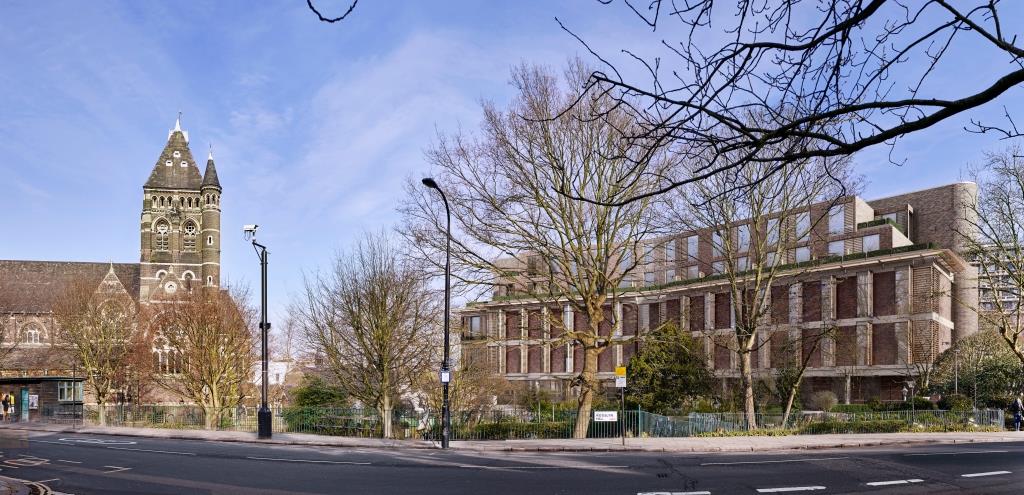More than 50 local residents, members of staff, patients and local councillors attended a public consultation on the construction of the Pears Building. 
At the meeting, on 30 November, attendees heard about the plans for the new building and how the construction project will be managed. They were also given the opportunity to ask questions about the plans.
Construction of the new building, which will be built next to the Royal Free Hospital, is expected to begin in Spring 2017. The Pears Building will be home to the expanded UCL Institute of Immunity and Transplantation (IIT), where researchers are developing new medicines for conditions such as cancer and type 1 diabetes.
At the meeting the trust responded to questions about the research taking place at the IIT, as well as access to the site during construction and parking arrangements at the hospital. A patient at the meeting also spoke about the life-saving care she has received from clinical staff at the IIT.
Professor Hans Stauss, director of the IIT, told the meeting that the expansion of the IIT will mean ground-breaking treatments can be developed more quickly and more patients at the Royal Free London will have the opportunity to take part in clinical trials.
He said “It currently takes 17 years for medical research to become approved medicine available for patients – we need to be able to do this more quickly.
“The new building will enable us to do this because researchers, patients and clinicians are located in one place. This co-location is key in enabling scientists and doctors to understand disease and develop new and more effective medicines more quickly.
“The expansion of the institute means we can continue to attract the best scientists from across the world – this seamless integration of research and clinical activity is unique in Europe so scientists from across the globe will be interested in working here.”
The Pears Building, which is a joint project between the Royal Free Charity, the Royal Free London NHS Foundation Trust and University College London, will also house patient accommodation so that out-patients who live far from the hospital can stay on site overnight. There will also be a car park and office space for the Royal Free Charity.
Andrew Panniker, director of capital and estates at the Royal Free London, said: “We are taking every precaution to ensure that during construction there is as little disruption to residents, patients and members of staff as possible. We will be monitoring the noise and vibrations as we are acutely aware of our obligation not to cause harm to adjacent buildings. In the unlikely event of any damage caused by our works we will put it right. We will continue to closely consult residents as the construction process moves forward.”
There will be further public consultations held in the new year, which will include information about the detailed basement construction plan for the Pears Building.
Ends
Image: Artist's impression of the Pears Building
Notes to editors
About the Royal Free London NHS Foundation Trust
The Royal Free began as a pioneering organisation and continues to play a leading role in the care of patients. Our mission is to provide world class expertise and local care. In the 21st century, the Royal Free London continues to lead improvements in healthcare.
The Royal Free London attracts patients from across the country and beyond to its specialist services in liver and kidney transplantation, haemophilia, renal care, HIV, infectious diseases, plastic surgery, immunology, Parkinson's disease, vascular surgery, cardiology, amyloidosis and scleroderma and we are a member of the academic health science partnership UCLPartners.
In July 2014 Barnet Hospital and Chase Farm Hospital became part of the Royal Free London. Read 'A bigger trust, a better future'.
 Translate
Translate